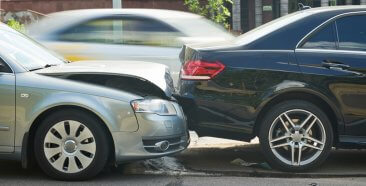
When talking about America’s love affair with the automobile, it may be hard for some of us to part ways with our beloved car, truck or SUV. It’s not unusual for owners to hold on to their vehicle way too long – whether out of loyalty or attachment – until it leads to a slew of costly repairs. Paying for auto insurance on a car that’s been emptying your bank account or maxing out your credit cards defies logic. Yet, many of us continue to fix the unfixable, wrongly believing it’s the last repair our baby will need for a while.
Trying to decide when to sell your current car can be difficult. After all, with proper maintenance, today’s vehicles can last 250,000 to 300,000 miles. But that doesn’t automatically mean there haven’t been or won’t be expensive repairs on the way to that mileage. Preventative maintenance is the key to help avoid the need for those repairs.
However, even the most careful owners may have to deal with mechanical issues on occasion. And, addressing them quickly is important to keep a minor problem from growing into a wallet-breaker. According to Ken Berman, a service advisor with Ralph Thayer Volkswagen in Livonia, Michigan, if a driver starts hearing abnormal noises – such as clicking, grinding or knocking – or sees excessive smoke from the exhaust, it’s important to have them checked out as soon as possible
Statistics bear out the fact that owners have changed their opinion of how long their vehicles can last before they need to be sold. In a recent survey from IHS Automotive, it was found that drivers are now holding onto their newly purchased vehicles for an average of 77.8 months, which is a jump of more than 25 months since 2006. According to the same survey, information gathered shows the average age of a vehicle on the road today will be 11.6 years in 2016, with the expectation that the number will continue to rise slightly through at least 2018.
While vehicles have clearly become quite durable – it remains the owner’s responsibility to provide proper preventative maintenance care. And, that owner should weigh the cost of the maintenance, as well as past and potentially expensive future repairs to his current vehicle versus the monthly payments needed to replace it. Apparently, the majority of new-vehicle customers are less likely to be drivers whose cars have let them down, than customers who are simply bored with or tired of their older rides and want something new.
An added advantage to purchasing a new car is the extended warranty, which can be 10 years or 100,000 miles, depending on the automaker. This should also be a consideration as it could save you a great deal of money as opposed to a vehicle with an expired warranty – and, whose repairs will come strictly out of your pocket.
Furthermore, there’s an obvious connection between safety and getting rid of a vehicle that should not be overlooked. Newer vehicles have electronic stability control. This technology, designed to help drivers stay in control of their vehicles in certain low-traction driving scenarios, was made mandatory on all model-year 2012 vehicles. If your current vehicle isn’t so equipped, it may be another sign to trade it in or sell it.
Electronic stability control has actually saved many lives since it was first installed in selected vehicles. A National Highway Traffic Safety Administration study for the period from 2008-2010, before the ESC ruling, showed that the technology saved 634, 705 and 863 lives, respectively, during those three years.
In fact, ESC has saved more lives each year than a backup camera. Case in point, the recent NHTSA rule requiring mandatory backup cameras in new vehicles – a mandate that will go into effect by May 2018 – showed an average of 210 back-over fatalities each year.
The final choice is up to you. If your current vehicle shows no sign of giving up and has been properly maintained, then there is no reason to let it go. But, if you’re constantly paying to repair it or safety becomes an issue – it may be time for you to part ways – and not look back.
Regardless of your vehicle’s age, you need to make sure you’re getting the best auto insurance rates available. Paying too much for car insurance shouldn’t be an option – so why not get a free auto insurance quote comparison today?
Call Freeway Insurance today at (800) 777-5620 to get a free car insurance quote or request your free quote online.



